Infidelity is really a relationship ender. While every couple might have different expectations and rules, breaking those is, by definition, cheating. But, life is rarely that black and white, so sometimes couples have to negotiate differences in perception. As one can imagine, sometimes this doesn’t go over well.
A woman asked the internet what to do when her boyfriend of one year (this is relevant) started to accuse her of “micro-cheating” after finding a picture on her phone from before their relationship. We reached out to the woman who shared the story via private message and will update the article when she gets back to us.
Normally, things that happened before a relationship stay in the past

Image credits: Sudatip T. / unsplash (not the actual photo)
So one woman didn’t quite know what to do when her BF accused her of “micro-cheating”


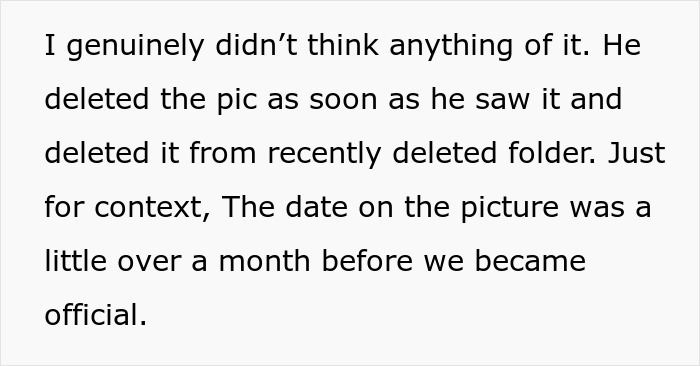
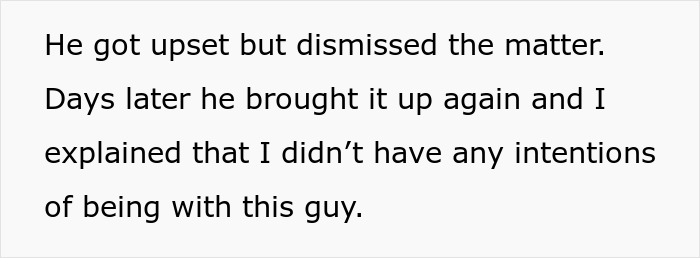

Image credits: Hannah Busing / unsplash (not the actual photo)
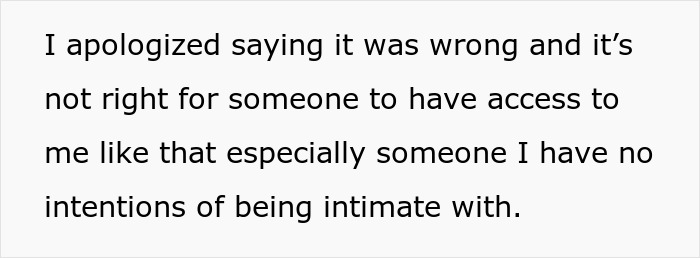
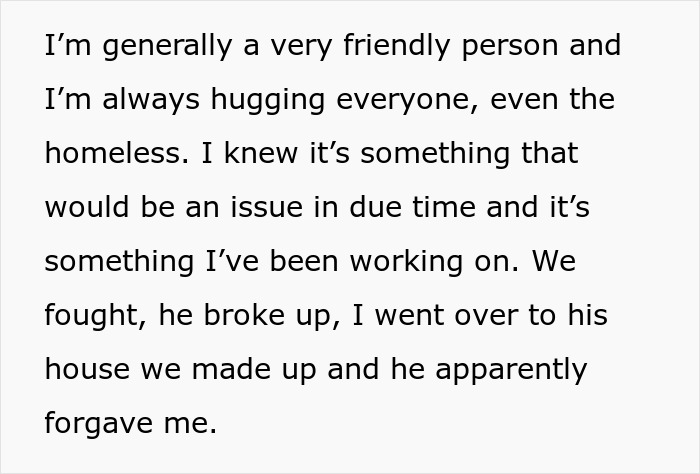
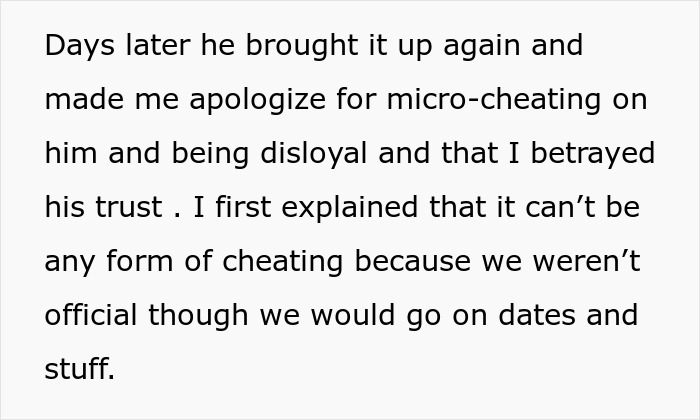

Image credits: Joshua Reddekopp / unsplash (not the actual photo)
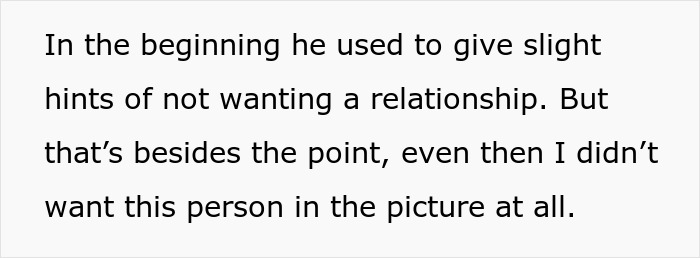
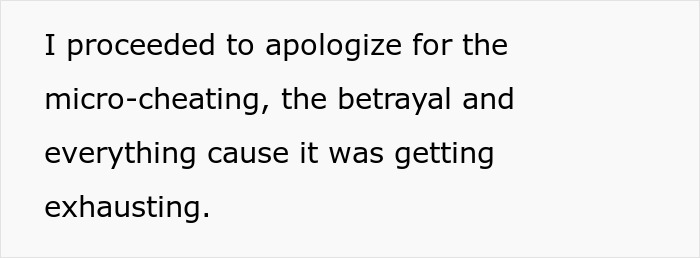
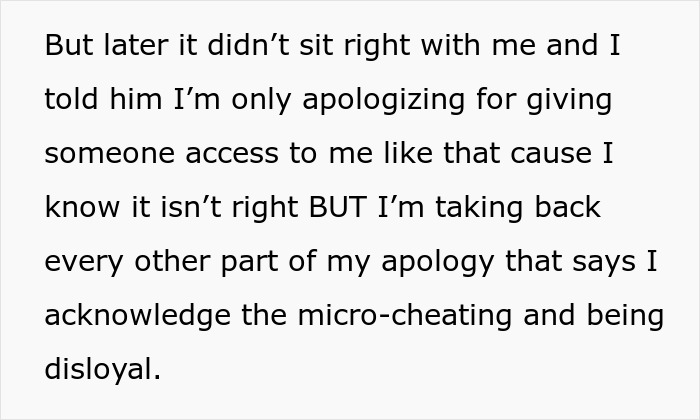

Image credits: Mathilde LMD / unsplash (not the actual photo)
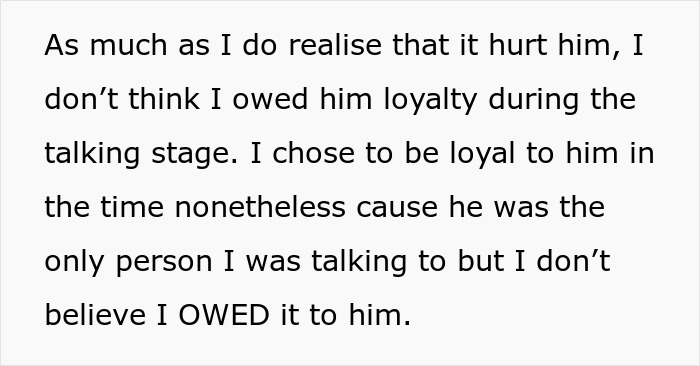

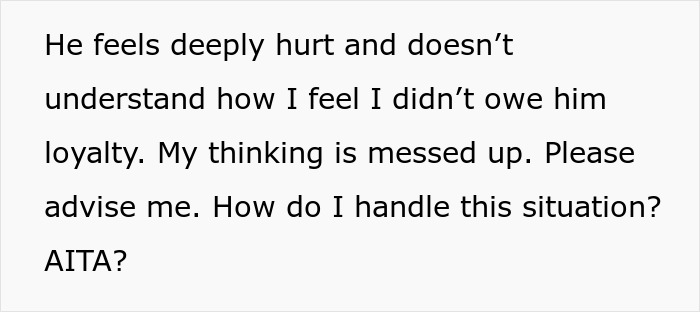
Image credits: Emotional_Art588
It can be hard to pin down what is insecurity and what is actually cheating

Image credits: Daniel Martinez / unsplash (not the actual photo)
Micro-cheating is the dishonest acts that just barely amount to overt cheating, but nonetheless function in opposition to a partner’s trust, Internet flirting, having secretive conversation with an ex, or talking about intimate things to someone outside the relationship. These small things individually are sufficient to break emotional safety. But when awareness of micro-cheating as a tool of manipulation enters the scene, the dynamic shifts less about boundary-testing and more about manipulating feelings.
At face value, calling out a person for micro-cheating seems like good sense, no one wants his or her beloved to be sharing sweet nothings with another. But others employ the term as a means of keeping their lover in suspense. Through accusing an intimate partner of “micro-cheating” on occasion of harmless interactions, a good-morning text from a friendly coworker, a social-media-comment “Like,” a comment on someone else’s vacation photo, they manufacture crises that need to be dealt with at once.
Suddenly an innocent exchange is re-defined as a grave betrayal, making the accused partner defensive: “How dare you doubt my fidelity?” becomes the reflexive response, rather than examining the real issue at hand. This ploy depends on emotional vagueness. If you’re constantly second-guessing your own behavior yourself, questioning whether greeting a co-worker is emotional infidelity, you may begin to quash basic social needs. The manipulator’s insinuation, expressed with feigned hurt or moral outrage, generates guilt and fear. It also causes them self-appointed guardians of the “purity” of the relationship, even when what is and isn’t acceptable grows too mushy to discern.
Often, the accusations are enough to make the relationship fall apart

Image credits: Getty Images / unsplash (not the actual photo)
Over time, this constant policing wears down self-esteem: you start thinking that you have to censor every thought or encounter in advance lest you invite more recriminations. Moreover, the accusation of micro-cheating can also be an easy distraction from the manipulator’s own weaknesses. For instance, if one partner sends flirtatious messages or hides financial issues secretly behind their partner’s back. By blaming their partner initially for micro-cheating, they distract from their own behavior. Any attempt the other party makes to question or ask is waved away as “jumping to conclusions” or “making mountains out of molehills,” even when it was their own partner who had first set up a vague boundary.
The accuser is labeled paranoid or insecure, while the true culprit goes unchecked. Alienation is another certain by-product. If you’re constantly reminded that normal social contact is evidence of infidelity, you may withdraw from friends and relatives so that you won’t be in conflict with your partner. The abuser exploits this shrinking social network, so the partner only has the relationship as a source of friendship, or self-worth. Basically, they’re employing “micro-cheating” as a chain to tie their partner to the relationship through fear of unwarranted accusation.
Toxic partners can use claims of “micro-cheating” to manipulate people

Image credits: Getty Images / unsplash (not the actual photo)
This erodes autonomy and promotes dependence, which will be seized on by the manipulator as mere “evidence” that their partner loves them completely. Of course, not every problem with boundaries or emotional fidelity is manipulation. Normal couples haggle about what is good: can flirting via text message be acceptable, or is it too much? The warning flag is raised when that haggling isn’t equal, when one party demands total surrender and uses name-calling as a bargaining chip rather than good old-fashioned talk. Actual partnership relies on trust and actual respect for each other’s feelings, not terror of a perpetually moving goalpost.
Recognizing micro-cheating as manipulative is the start of reclaiming emotional autonomy. If you are constantly apologizing for harmless interactions, or if you are drained from the constant guilt over harmless actions, take a moment to ask yourself: Who benefits from these accusations? Is there an open and straightforward agreement on the acceptable limits, or is the definition being adjusted to satisfy only one’s own anxieties? Drawing a clear line, respectfully but firmly, around outlandish micro-cheating claims can put things in balance again.
Being open and honest, and regular practice, can re-erect trust on solid foundations instead of someone else’s shifting moral quicksand. Micro-cheating can never be a catch-all excuse for quashing normal social life or avoiding personal responsibility. Manipulation by accusation instead of sincere concern starts to taint rather than protect the relationship. Clear boundaries and firmness against coercion from ambiguous “rules” are required for a relationship based on honesty and not hidden agendas.
Most though she was not in the wrong

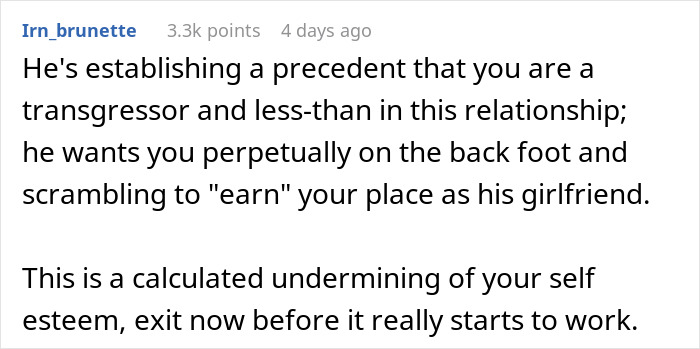


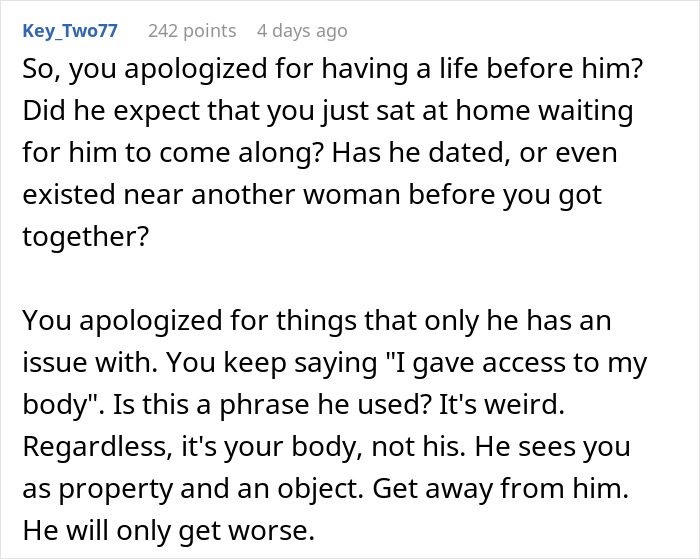

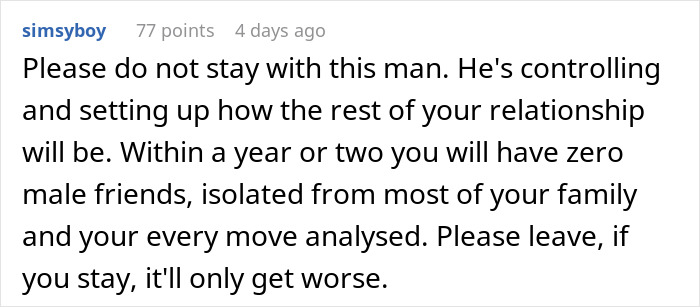
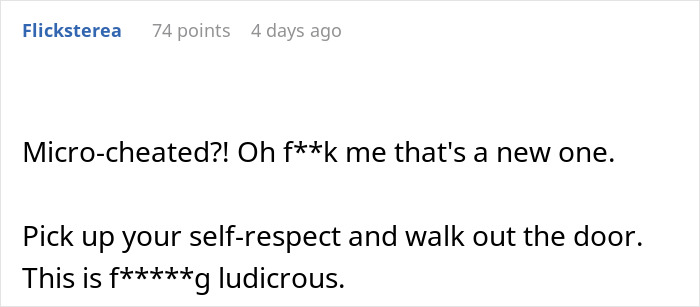





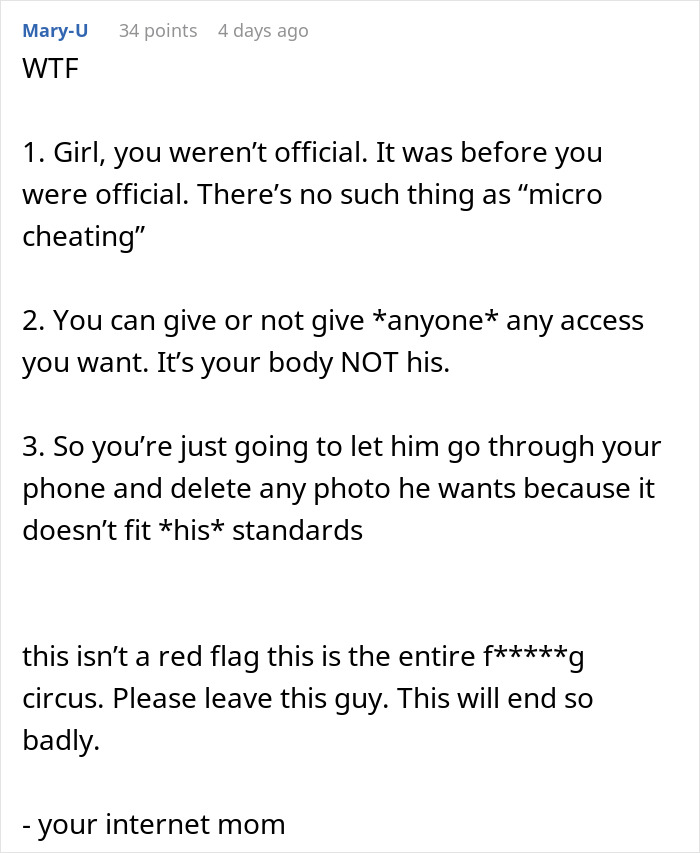


[similar stories]

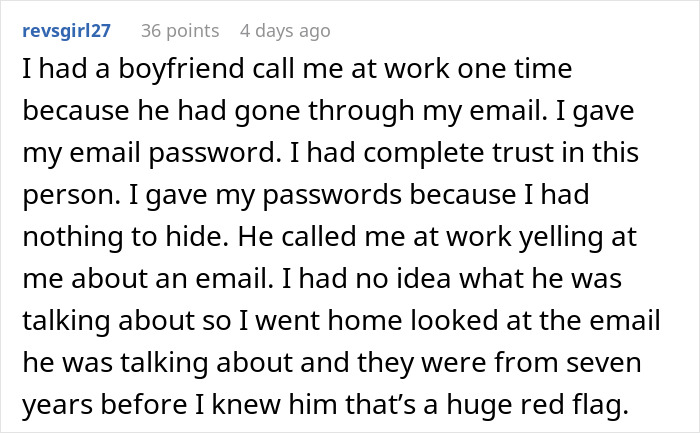
Some thought she wasn’t being honest
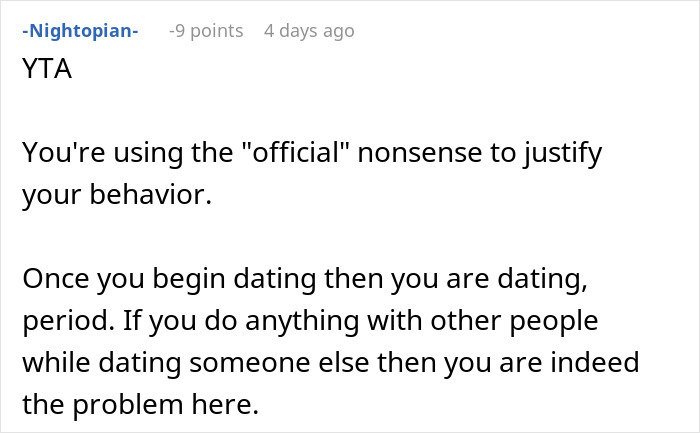

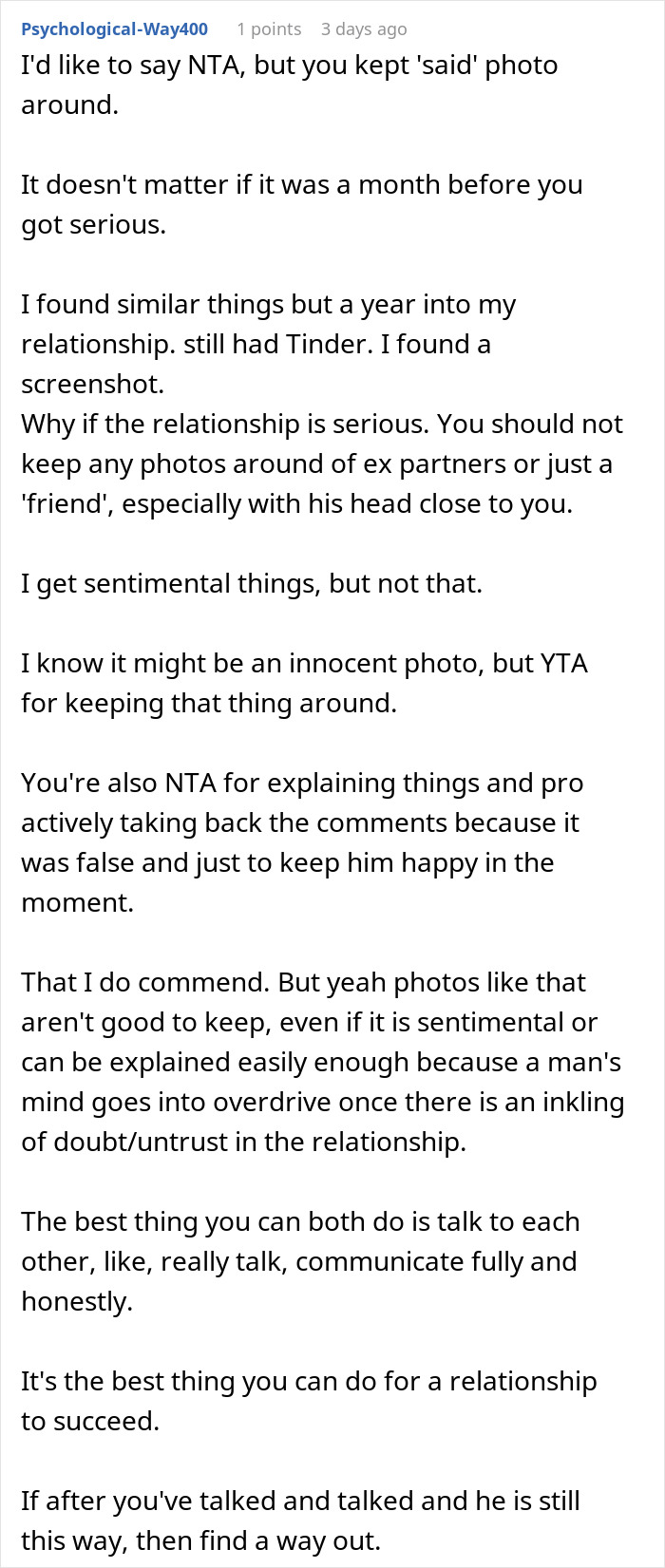

from Bored Panda https://ift.tt/8HUsn1o
via IFTTT source site : boredpanda